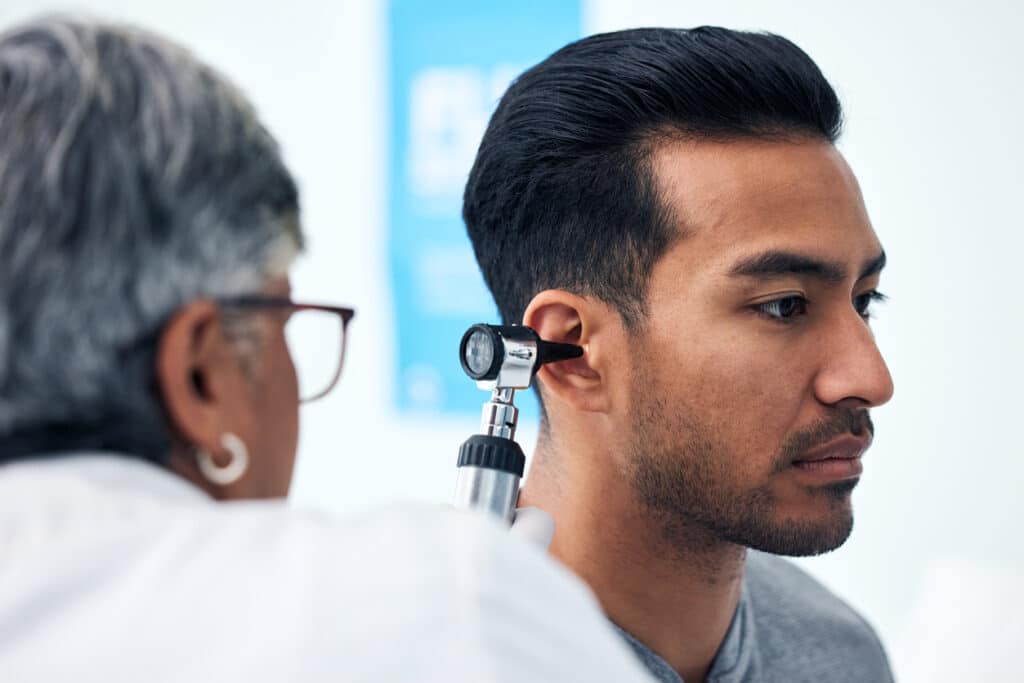Hearing loss affects approximately 15% of United States adults. Several common ear issues can impact your hearing, but recognizing the signs and knowing how to manage them can help you take the right steps toward treatment. Let’s explore some potential culprits behind hearing problems and how to address them effectively.
Earwax (Cerumen)

Earwax traps germs and dirt before they can infiltrate your ear. While most earwax moves out of the ear on its own, there are a few things that can cause it to build up, including but not limited to:
- Earplug, headphone or hearing aid usage
- Putting cotton swabs in the ears
- Excess ear hair
- Skin conditions like eczema
Excess earwax can block the ear canal, leading to hearing loss, discomfort and a clogged feeling. If earwax is muffling all your favorite sounds, contact your provider for safe removal.
Ear Infections (Otitis Media)
Ear infections arise when a virus or bacteria infects the space behind the eardrum, leading to inflammation and fluid buildup. Common symptoms include:
- Ear pain or pressure
- Trouble hearing
- Fever (in some cases)
Most ear infections clear up on their own, but some require antibiotics. If infections keep coming back, doctors might suggest ear tubes to help drain fluid and prevent further problems like permanent damage or hearing loss.
Abnormal Bone Growth
Otosclerosis is a condition where abnormal bone growth in the middle ear disrupts sound transmission. It tends to develop gradually and can eventually lead to significant hearing loss.
Your treatment options may include hearing aids for mild cases or a stapedectomy surgery to replace the affected bone with a prosthetic.
Non-cancerous Tumors
An acoustic neuroma is a non-cancerous tumor that grows on the vestibulocochlear nerve, the nerve responsible for sending auditory and balance signals to the brain. Acoustic neuromas may cause one or more of the following symptoms:
- Gradual hearing loss in the affected ear
- Ringing in the ears (tinnitus)
- Balance problems or dizziness
Smaller tumors don’t often require treatment, but larger ones might need surgery, radiation therapy or hearing aids. If your tumor is small, your provider might recommend regular monitoring to track its growth and intervene before it causes hearing or balance issues.
How Do Hearing Issues Affect Me?
Hearing loss isn’t just about missing a few words. It can affect relationships, mental health and overall quality of life. The sooner you address ear problems, the better your chances of preserving your hearing.
If you’re frequently asking people to repeat themselves, noticing difficulty hearing children or Katy Park birds or struggling to understand others in noisy environments, contact Today’s Hearing to schedule a hearing test with one of our specialists.